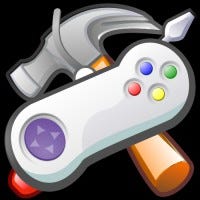How to create and sell a game with a small team
Some tips and thoughts on how to develop and sell your first indie game from my hand-on experience.

If you want to create your first game as an indie developer but have absolutely zero knowledge about game development industry, then this article will give you a brief overview how to create a game with smallest team possible and then sell it.
What you need for game dev
I think that almost all know four main parts of game dev:
Design;
Programming;
Graphics;
Music.
This is why to create anything more complex than Tetris but just little worse than GTA will take three persons. Less means that you compromise on something, more means that you need yet another person who will be in charge of everything.
Apart from that, you need to be dedicated to developing your game. It’s hard to combine regular work and your initiative. So you need to make a choice.
And last but not least. If English isn’t your native language, then you must learn it. Otherwise you will be the only one to play your game (okay, there’re your friends, but that’s not the best monetization model).
What kind of game to create
The short answer will be “the simpler the better”. At this stage you task is to go through full cycle, get some experience and, if you get lucky, make some money from it. If you start doing a complex game from the very beginning, chances are that you won’t manage to finish it thus not getting full experience of developing AND releasing a game.
Don’t think that you immediately need to create something better than Call of Duty. Start with Tetris or Pacman game principles (or take them form mobile app development, as most mobile games have pretty simple gameplay) but bring some new vision to these classic games, alongside with new graphics. Another important thing is that your game should have its own clear idea. This idea should be your landmark throughout the whole development process.
Is it possible to organize remote working process
Well, technically modern technologies offer you a number of opportunities how to collaborate remotely, but from my personal experience I can say that it’s far faster and easier to develop a game while sitting together in one room or office. Still, here’s some advice for you:
Introduce task management system where all tasks will be written down for each member of a team.
Use online collaboration tools like Google Docs, where everyone can see the latest version and revision which were done.
Hold everyday online conference calls which will keep you updated on what’s going on.
Keep tracking your progress, every little bit of it. There’s nothing worse than seeing some stagnation.
Introduce versions control system, like GitHub, for example.
Not-so-development problems
You need to be ready that you’ll have to overcome a lot of problems which are not directly connected with the development process itself. As there’re only three of you in the team, all of you will have to wear someone else’s shoes.
Game engines
Don’t start re-inventing the wheel, just use any existing game engine which meets you requirements, unless there’s no such engine. In this case, you’re stuck. It’s no use start developing your own engine as it’ll take a lot of time and efforts. And users won’t appreciate it, they simply won’t see it! They see only the front side of a game, not what’s inside of it.
Documentation
The right documentation will appear naturally. You don’t need to write it for the sake of having documentation, but at some point you’ll have to write down decisions you’ve made, design patterns you’ve decided on. And it will be your own documentation.
Timeframes and deadlines
Sometimes, people creating their own games don’t pay any attention to timeframes as they don’t have to report to anyone. That’s a big no-no. You need to set both global timeframes and smaller deadlines both for yourself and for other people. I’m more than sure that you won’t be able to meet all of them, but still it’s important to set them up because:
The longer you make a game, the more expensive it becomes. Your work is worth something, right?
If your process is enthusiasm-driven, then enthusiasm tends to disappear after some time. And people become tired and irritated when they see no results.
Deadlines will give your development process pace and motivation.
Where to sell you game
Ok, finally, you’ve got your game and you want to sell it so that people can share your joy. One of the best places to do that will be Steam with its thousands of users. But it’s not that easy to get there. First of all, you need to pay $100 (I think it’s more like a wall against low quality submissions rather than an attempt to make money). After that you need to prepare good screenshots and great description in order to get users interested in your game. And if you manage to get into Greenlight top-100, then your game will be approved.
Read more about:
BlogsAbout the Author(s)
You May Also Like







.jpeg?width=700&auto=webp&quality=80&disable=upscale)








